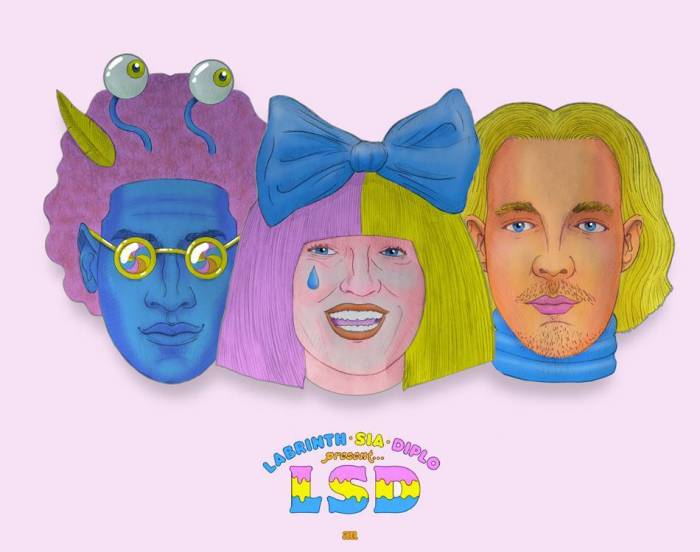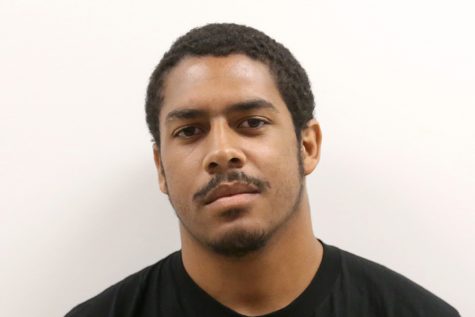Pop supergroup LSD tries too much in debut effort
Labrinth, Sia and Diplo release freshman album
Sia, Labrinth, and Diplo teamed up as a pop supergroup LSD.
Apr 17, 2019
Supergroups have an interesting history in music. Sometimes these collections of prolific musicians can produce stellar projects as in the case of rock supergroup Audioslave.
However, getting three or four accomplished musicians together leads to supergroups struggling with focus.
Each member brings a plethora of divergent ideas to the table which are diluted in an effort to fit them all in.
Newly formed pop supergroup LSD brings Australian singer/songwriter Sia, English singer-songwriter Labrinth and DJ and producer Diplo together in their new 30-minute electronic album “Labrinth, Sia & Diplo Present… LSD.”
It’s been a while, about a year, since the group released its first single “Genius,” which came as a shock to music aficionados.
In this current project, the building strings and nice bounce to Diplo’s beat works perfectly with Labrinth’s soulful voice and Sia’s trademark sound. The two singers trade verses and choruses and come together for tight harmonies that just sound right — especially at the end of the tracks.
“Genius” is a promising introductory project for the supergroup, but a year of push-backs and delays saw them drop off the map.
With their new album release Friday, it’s a shame they lost so much momentum.
It’s a pretty fun album despite the common issues that supergroups have of trying to do too much.
The opening track, “Welcome to the Wonderful World Of,” puts the group’s best and worst qualities up front.
Sia and Labrinth start off with some gorgeous a capella harmonies before the song transitions into a hip-hop styled track with nasty bass supporting a guitar driven psychedelic rock section straight out of a 70s rock epic.
This all happens in about a minute — it’s a lot.
Individually, each idea is absolutely intriguing but neither gets a real time to shine.
The rest of the tracks on the album each have a distinct sound to them.
“Angel in Your Eyes” captures a smooth tropical feel with its dance hall rhythm that primarily uses Sia’s chopped up vocals for its main melody.
However, there are songs like “Thunderclouds” and “Heaven Can Wait” which showcase LSD as a group at their best. These electronic and rock-hybrid songs allow Labrinth and Sia to use their full vocal range over Diplo’s dynamic, clean and bombastic production.
The group’s talent as songwriters is also prominently featured because each song has an undeniably catchy chorus, particularly “Heaven Can Wait.”
“No New Friends” is a pop song made for the stages of Coachella and “It’s Time” is a beautiful piano ballad where Labrinth and Sia show their vocal chops.
Each track highlights distinct personalities, which is a great trait, especially because the album is so short.
Sometimes the tracks struggle with having a little too much going on, however, it’s clear Diplo and Labrinth had fun with the production.
There are a lot of interesting vocal samples and instrumental transitional quirks throughout each of the approximately three-minute tracks.
But having so many elements going on in a song causes conflict, which leaves interesting ideas to end up taking away from one another.
Simplicity is what makes “It’s Time” and “Mountains” two of the best songs on the album.
Ultimately, it’s much better for a group to clearly experiment with ideas through a collaborative effort than playing it safe.
There is clear effort from LSD to create interesting electronic music.



